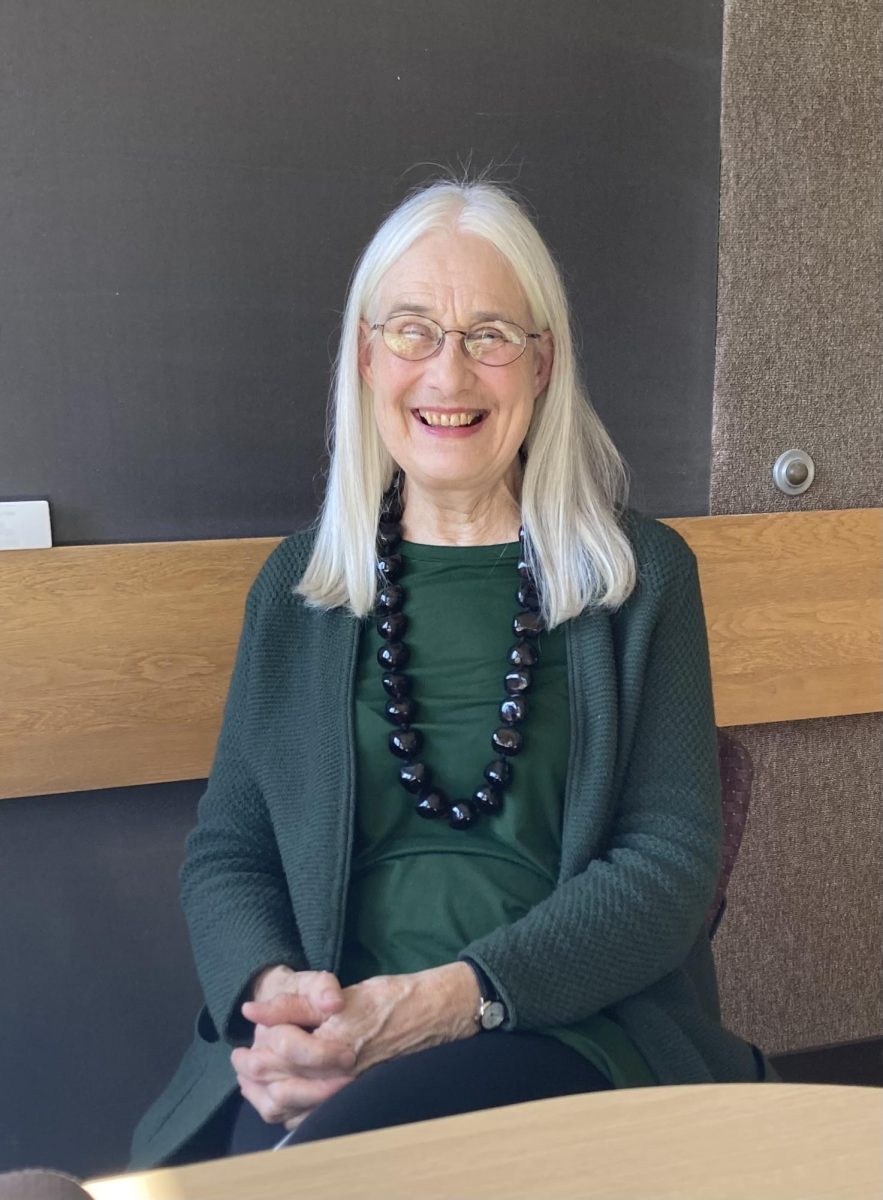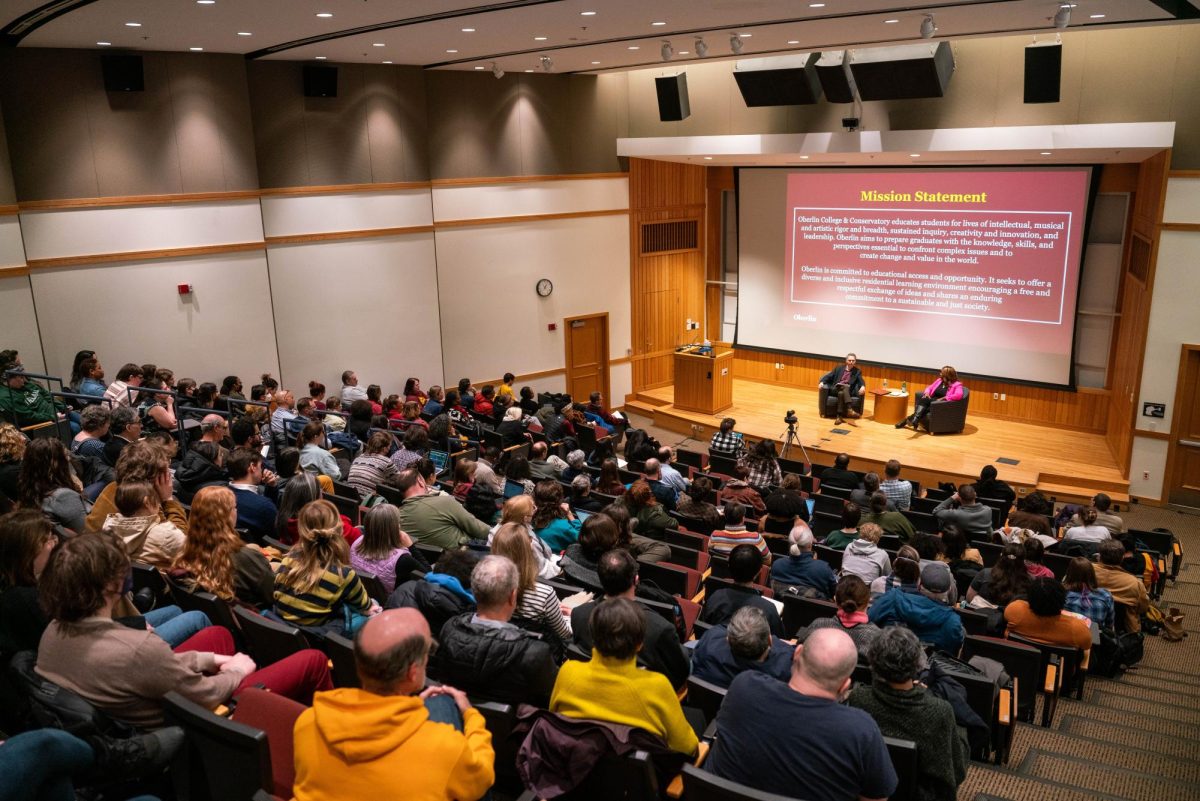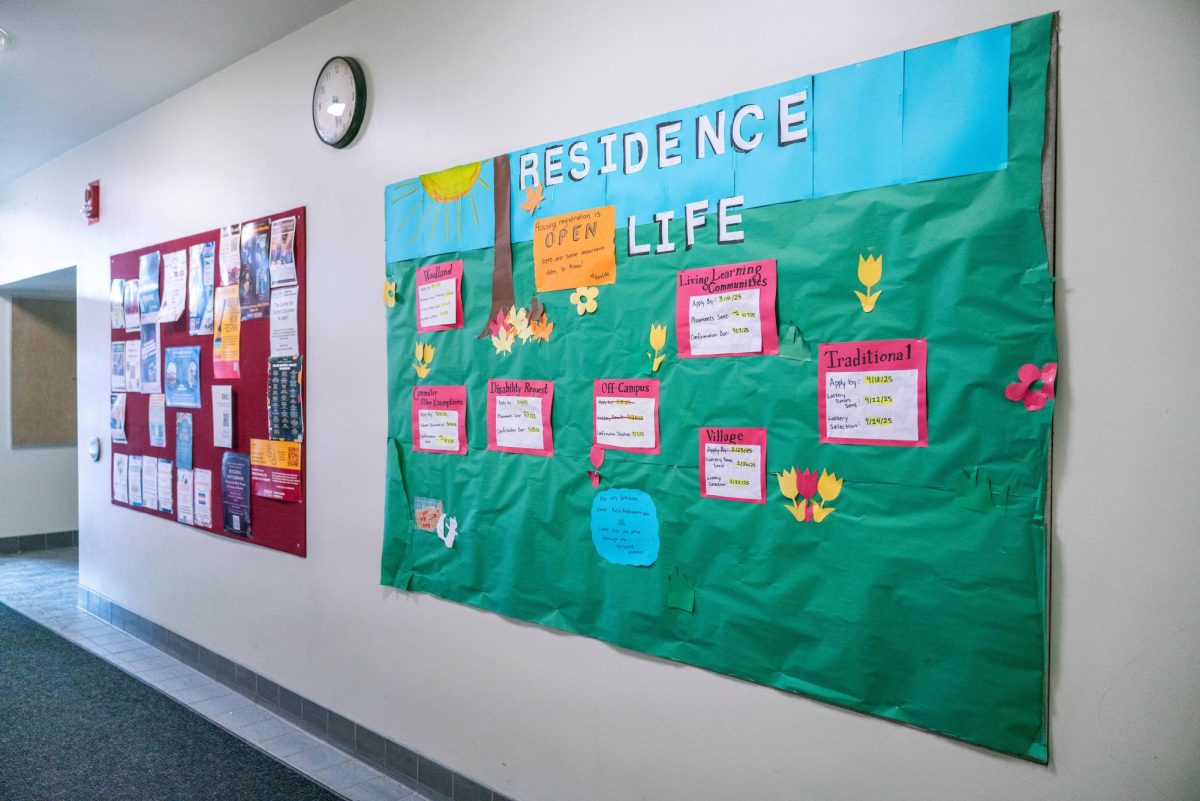Editors’ Note: This article contains mention of Title IX procedures that concern reported sexual misconduct.
In November, College third-years Sydney Epstein and Mary Ann Montgomery filed a slew of complaints against Oberlin College and its Office for Institutional Equity, formerly known as the Office of Equity, Diversity, and Inclusion. In a meeting with General Counsel, Vice President, and Secretary of the College Matthew Lahey and Chief of Staff David Hertz, the two students notified the College of the complaints that they filed to the U.S. Department of Education alleging violations of the Clery Act and FERPA and to the Office of Civil Rights accusing Oberlin of sex-based discrimination.
According to Epstein and Montgomery, the College has agreed to a mediation process to address the claimed violations and remedy any errors found to exist before or in lieu of a formal investigation by the Department of Education and Office of Civil Rights.
Epstein, at the advice of an attorney, submitted reports to the Department of Education detailing alleged Clery Act and FERPA violations and to the Office of Civil Rights accusing Oberlin College of sex-based discrimination. Montgomery submitted a report solely to the Department of Education regarding an alleged Clery Act violation in the handling of her Title IX adaptive resolution case.
“Throughout my interactions with Oberlin OIE, my rights have been improperly communicated to me, my privacy breached, and my feeling of safety as a [complainant] on Oberlin’s campus destroyed,” Epstein wrote in the Clery Act report that she submitted.
While Epstein and Montgomery’s alleged violations span the course of two years, the catalyst for their recent action took place in September 2024.
Epstein’s formal Title IX case had closed in May 2024 after no policy violations were found to have occurred. As part of her case, Epstein and the responding party had agreed to a no-contact order, which was issued by Campus Safety in October 2023. No-contact orders are a standard part of the Title IX process and are not premised on the likely merits of a Title IX complaint. When Epstein’s case closed, Director for Institutional Equity, Title IX Coordinator, and ADA/Section 504 Coordinator Rebecca Mosely told Epstein in an email provided to the Review that the no-contact order would stay in effect. She did not mention that, because the responding party was not found responsible for any policy violation, the no-contact order should have been modified to exclude language prohibiting the two parties from being at the same social gatherings. Epstein said that she did not receive an updated copy of the no-contact order from the OIE or Campus Safety until after a September incident.
When Epstein returned to campus for the fall 2024 semester, she sent an email to Campus Safety asking for clarification as to whether or not her no-contact order from the previous year was still in effect. Campus Safety responded to the email, which was provided to the Review, confirming that the no-contact order was still in place. The email did not mention any changes made to the no-contact order.
The initial no-contact order, issued by Campus Safety in October 2023, contained language about non-obligatory events such as parties and other social gatherings. This language recommended that the individual who arrived first should stay and the individual who arrived second should leave.
“No contact also includes refraining from remaining at campus locations where the other party is present, and you do not have a legitimate purpose for being there,” Epstein’s copy of her no-contact order reads. “If you find yourself in a space where both you and the other party have a legitimate reason for being at the same time, you are expected to do what you can to avoid the other party in that space. Since this is a mutual no contact order, if you find yourself at a social function, whether on or off campus, the party who arrived first has preference for remaining and the other party should leave.”
Later that month, the responding party showed up to an on-campus party hosted by members of the men’s and women’s soccer teams. Epstein was already in attendance. A member of the soccer team herself, Epstein had told a few close teammates prior to the party that, even though her case had closed, she was told by Mosely and Campus Safety that her no-contact order with the responding party was still active, and that she believed that the respondent would be violating that order by attending the party based on the language from the original order. When the respondent arrived, Epstein’s teammates asked the individual to leave the party under the assumption that the no-contact order barred their presence.
However, the modified order that was put into place after Epstein’s case had closed did not bar the respondent from being in the same spaces as Epstein, and the prohibitions relating to parties could no longer be enforced. Epstein said that she was not informed of this modification until after the September incident.
In an email provided to the Review, Mosely apologized for the miscommunication, clarifying that the respondent was not in violation of their no-contact order and that Epstein would not be held responsible for retaliation in regards to the incident.
Oberlin College Title IX Sexual Harassment Policy, last updated in February 2022, states that supportive measures such as no-contact orders “may be kept in place until the end of any review or appeal process.” The no-contact order regarding Epstein’s case stated that the “order will remain in place pending the resolution of [the] case with the Title IX office.”
After the incident, Mosely called a meeting of the whole women’s soccer team. In a text message provided to the Review, Epstein was asked by her head coach not to attend the meeting and said that she received no notice from Mosely or the OIE about the content of the meeting. According to members of the soccer team, Mosely referred to the responding party by name and spoke to them about no-contact orders and retaliation, which Oberlin’s policy defines as “any attempt to intimidate, threaten, coerce, or take adverse action against a Reporting Party [or] Responding Party … that negatively alters the terms, conditions or benefits of that individual’s equitable access to College programs or activities.”
According to Epstein, many of her teammates did not previously know the details of her case.
“I was the only member of the team absent from the meeting,” Epstein wrote in one report. “Mosely explicitly mentioned that [the respondent] had been engaged in a Title IX case with a member of the women’s soccer team. My absence made it clear to my teammates that I was the member involved in the Title IX case. [Respondent] was referenced by first and last name in front of my entire team and coaching staff. Prior to this event, I had not disclosed [the alleged incident] to the whole team. Mosely also told my team I was no longer protected by a no-contact order, something I had never been told and had no reason to believe was true. … Neither Rebecca Mosely or any members of the institution held an equivalent or similar meeting with the men’s soccer team or [any other] team. … This meeting demonstrated to me and all of my teammates that the office for OIE is more committed to the rights of [respondents] than [complainants].”
Both the Nondiscrimination and Harassment and Title IX Sexual Harassment policies state that the OIE is unable to promise confidentiality, and aims to handle all matters discreetly by “sharing information only with those who need to know and by informing participants of those disclosures.” Though Epstein’s case was officially closed, she believes that she should have been notified of the disclosure of information regarding her case. When asked about speaking to the women’s soccer team, Mosely referred to her responsibility to discourage retaliation on campus.
“While I cannot speak about the specifics of this situation, one of the responsibilities of the Office of Institutional Equity under Title IX is to make sure that on-going harassment and/or retaliation are not happening,” Mosely wrote in an email to the Review. “As such, it is my responsibility to address this alleged behavior when it is reported.”
After this event, Epstein and Montgomery, who both work as Survivors Of Sexual Harm and Advocates coordinators, spoke about how best to take action. Because Oberlin policy states that all complaints regarding the OIE be directed to the OIE Title IX coordinator herself, the students wanted to get the Department of Education’s OCR involved to ensure proper and unbiased review of the office.
Epstein also reported that, in the fall semester of 2023, she was placed in the same residence hall as the responding party. Epstein and the responding party at the time were in an active formal resolution process through the OIE. While their no-contact order was not established until October 2023, the order itself contains no information about residence halls. It is unclear as to whether or not their living in the same building would have been in violation of said order if Epstein had remained in the residence hall that she had been placed in. Epstein later chose to move residence halls to avoid contact with the responding party.
In an email provided to the Review, Mosely apologized to Epstein, explaining that she had provided their names to the Office of Residence Life, and that she had asked that Epstein and the responding party not be placed in the same building. She communicated that she would reach out to the responding party to see if they would be willing to move but that she could not force them to do so.
The Assistant Vice President and Dean of Residence Life and Auxiliary Services Mark Zeno responded in an email to the Review about this alleged oversight.
“The Office of Residence Life works closely with several campus offices, including Title IX, to make appropriate student housing placements,” Zeno wrote. “When a student needs to be relocated for safety reasons, we do our best to make these arrangements as quickly as possible. If an error does occur with housing placements, my housing team works with the involved students to rectify the situation immediately.”
Montgomery alleged that her case was not handled “promptly,” in accordance with the Clery Act, and that outcomes listed on the adaptive resolution process agreement that she and the responding party had signed were not completed.
Montgomery filed a report with the OIE at the end of February 2023. Mosely notified Montgomery that she had marked the case closed in mid-June 2023. In an email provided to the Review, Mosely noted that the educational training that the responding party had agreed to had been completed, but made no note of the completion of a written reflection that was to be submitted to an Oberlin staff member and written apology to a campus organization per Montgomery and the responding party’s agreement. Montgomery alleges that these outcomes as outlined in the final ARP were never met. Mosely did not respond to Montgomery’s email asking for verification that these steps had been completed.
“If an apology to a reporting party has been built into the adaptive resolution or made a requirement of a formal resolution, it has been done,” Mosely wrote in an email to the Review. “If the apology is included in an adaptive resolution or required in a formal resolution but not provided, it would put the responding party in violation of the adaptive resolution.”
Montgomery and Epstein assert that the OIE should be a resource on campus that those who report sexual harm feel comfortable accessing, but that for them, they believe it caused more harm than good.
“If we were to do this again, we wouldn’t, because this whole experience, all of our interactions with Title IX at Oberlin, have just made our experience at Oberlin more traumatizing,” Epstein said.
The Oberlin Review is currently interviewing students who would like to share their experiences with the OIE and Title IX at Oberlin. If you would like to share your experience, please email edsinchief@oberlinreview.org.









